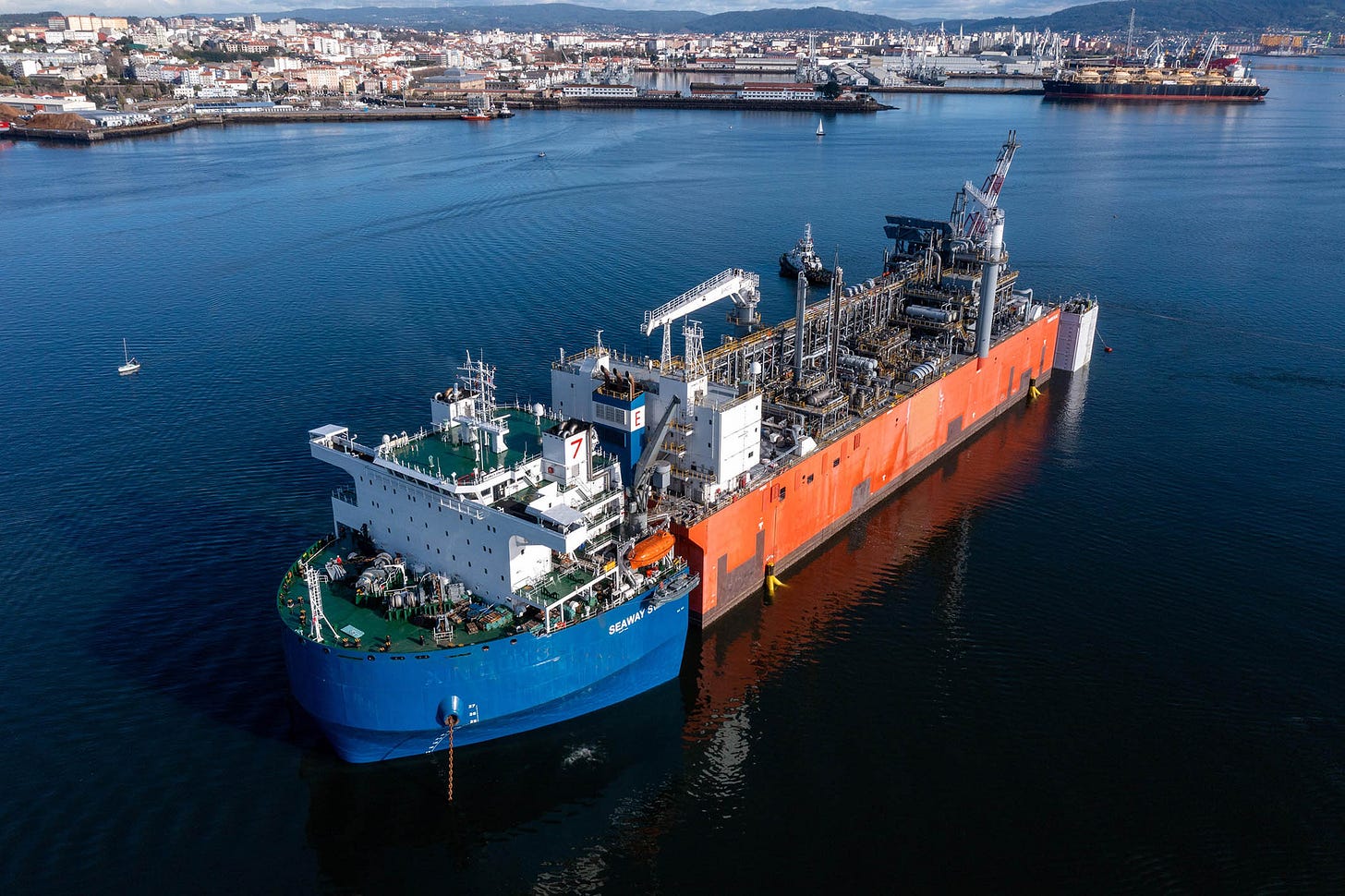Foot down on the gas as biofuel promises blow in the wind
Eni’s clean energy promises in the Republic of Congo are limping, but gas extraction is off to a roaring start.
Marlon De Mayila

This week the Republic of Congo loaded its first-ever cargo of liquified natural gas. The cargo “will sail to Piombino’s regasification terminal, in Italy, in the coming days,” said a press statement from Eni, the petrochemical giant controlled by the Italian state.
The shipment is the first output from a 2022 agreement between Eni and Congo’s government, in which the company promised to support the nation’s transition to clean energy while extracting gas for export from at least two energy rich fields in the country.
The clean energy transition promise has not seen the same speedy progress.
Eni says that by 2026, it will harvest 170,000 tonnes of crops from Congo for biofuels – clean energy that is supposed to help wean the world off the kind of fossil fuels that made it a €48-billion company. However, unlike its very hands-on approach to gas extraction in the country, Eni delegated the initial biofuel activities to other companies. They include the troubled Agri Resources, a Congolese subsidiary of multinational conglomerate Monaco Resources. Agri-
Resources has gone from one problem to another. First, it was accused of damaging local farms when setting up a vast 22,000 hectare project in Louvakou, southwestern Congo.
“They moved in and started destroying the fields. When they ransacked the plantations, they didn’t even ask the plantation owners to come and take their cassava crops,” said Audrey Mandigou, a farmer in Louvakou.
After a long legal battle, Agri-Resources agreed to pay 15-million CFA (about $24,000) to 57 farmers. It is also in financial distress – a minority shareholder sued it in 2019 on allegations of forgery and fraud, according to press reports. Martine Moussahou, whose family leases land to Agri Resources in Louvakou, said that her quarterly rental fees had stopped coming due to a “financial crisis” at the company.
It’s on 300 hectares of this Louvakou farm that Agri Resources helped Eni test castor beans for biofuel. In June 2023, Manuel Saunieme, a technical officer with Agri Resources, said the company
had “just completed a very successful first trial of castor oil crops’’ and was waiting for “the release of funds from Eni to begin planting in October”. But five months on, Agri Resources’s chief accountant Bon Samaritan Biene Biene said the yield “was not conclusive in view of the projections”.
In other words, the 300 hectares planted to test castor beans did not yield enough to warrant sowing on a large tract by the onset of the rainy season in November.
A hundred kilometres away from Louvakou, at Tolona Farm, the test didn’t go much better. There, the castor bean trial field covered 800 acres. Last July, a staff member at the farm said the trial was successful but the company “didn’t get any machines from Eni-Congo to harvest the beans, so everything dried up in the grass”.
No further planting had happened by early December. Responding to questions about it, Eni said the pilot’s performance has been “limited”.
Tolona’s manager, Oscar Gonzales Martinez, said that the castor beans have yet to be “adapted to tropical areas” and that future collaboration with Eni will “depend on that and other aspects related to finance and profitability.”
There has been no industrial production nor shipment of biofuel feedstock to Italy to date even though Eni promotes Congo as one of the African countries where its biofuel projects are most advanced.
Responding to questions, Eni said: “The pilots evaluated the performances of several castor varieties. The best performing varieties will be adopted in the agricultural campaign in 2024, along with the best agricultural practices.”
The company said that it has identified more than 20,000 hectares in Bouenza, Niari and Pool for the 2024 cultivation program. Eni also said that it is constructing an agri-hub in Loudima where it expects to start extracting vegetable oil in early 2024 – and that it will construct more.



